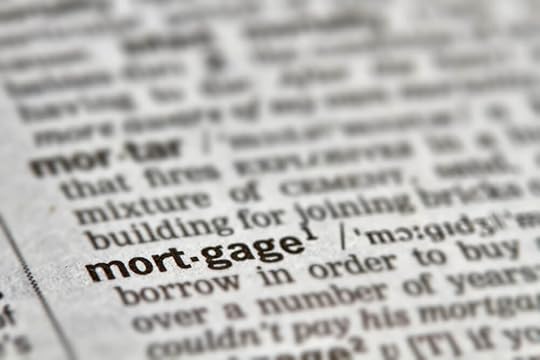Gea Elika's Blog, page 95
January 18, 2019
6 Ways To Get a Higher Home Appraisal

A home appraisal is essentially an evaluation of what your home is worth. The main criteria your appraiser considers is the location of your home, its size (including square footage, bedrooms, bathrooms, and lot size), it’s condition, (including the quality of structure inside and out, appliances, and any possibly disrepair), and any features it offers or lacks, (like central air, a washer, and dryer, an elevator, or a doorman).
Although factors like the size and location of your home may be out of your control, there are many steps sellers can take to increase their home’s value easily. What’s better, these steps are simple and affordable.
Before we get to our list, we always encourage sellers to prepare themselves for their appraisal by checking out homes for sale in their area. This will allow you to get a sense of what the competition looks like and compare what’s out there to what you’re home can offer. Scoping things out is the best way to figure out the kind of improvements you may need to make around the house.
Once you have an idea of what’s out there, you can begin to take these steps to up the value of your home. A little goes a long way.
1. Make your home spotless.
Don’t just tidy up, do a deep clean. Polish the floors, wash the windows, see your reflection in the bathroom faucet. Go ahead and make the place smell nice while you’re at it.
2. Take care of all those little projects around the house that you may have left lingering.
You’d be shocked to learn how something as small (and low-cost) as caulking the tub or freshening up peeling paint on a baseboard can get you a higher price for your home. Take a good look around and replace the broken handle on the kitchen cabinet or the outlet that’s hanging out of the wall.
3. Add some nice touches. Go for some “wow.”
Factors. Flowers are a great start. Think about curtains for the windows, nice towels in the bathroom, or some wall decor in places that are a bit sparse.
4. Invest in low-cost repairs and upgrades
Repainting your home is a great way to make it highly appealing to appraisers (and buyers). Do you have older appliances or surface materials like cabinets or floors? Time to upgrade. Things like new windows, a modern vanity in the bathroom, or a stainless steel microwave may seem like an expensive move when you’re trying to make a profit, but upgrades like these are guaranteed to yield a high return on investment.
5. Look beyond the home
Consider the assets surrounding your home. Are you in a good school zone? Do you have great public transportation options? Are you close to public parks? Is street parking easy? Public amenities count! Make your appraiser aware of what your home has to offer just by where it’s situated.
6. Let the appraiser know about any upgrades
You may think that a professional appraiser would never miss any of the work you do to upgrade your home. Don’t count on it! It’s essential to let your appraiser know about all of the recent updates, additions, repairs, and esthetic improvements you’ve made to your home. Show them the fruits of your labor so that all your hard work pays off.
The post 6 Ways To Get a Higher Home Appraisal appeared first on ELIKA Real Estate.
January 16, 2019
Considering a Studio Apartment? Here’s What to Know

As every New Yorker knows, finding space in the city isn’t
easy. Housing is also very expensive, whether you’re renting
or buying. To help cut costs, and also downsize your possessions,
studio apartments are the way to go. Granted, studio living does mean having to
deal with living in a very small confined space. But it can also be very cozy. In
fact, studio apartments have become something of a fad with many investors
developing luxury
studios with all the modern bells and whistles. Even if the more
luxurious types are out of your reach, you can still get one that meets all
your needs. If you’re on the hunt for one in the city, then you need to make
some considerations before you choose. Studio living requires a change in how
you might be used to living.
1. Have realistic expectations
One of the most important things you can do in your hunt for a studio apartment is to have realistic expectations. A lot of people moving to NYC for the first time think they can score a beautiful, modern studio apartment in East Village for $1,500. Unfortunately, that’s not the case. If you want prices like that, you’ll need to consider a neighborhood in the outer boroughs. Of course, you can still get lucky. But in a city, as crowded as NYC with such a long waiting list on apartments it’s better not to count on it. Do a little research into what kind of prices you can expect from your chosen borough and neighborhood. Try to stay realistic and keep an open mind.
2. Consider your needs and wants
As with staying realistic, you’ll also want to prioritize
your needs over your wants. Whether it’s location, space or amenities, you’ll
want to consider which of these your willing to compromise on. It’s a pipe
dream to think you’ll find a studio apartment that ticks all the boxes. Make a
list of the top three attributes you’re looking for in a studio apartment. You
can include an additional 2-3 ‘bonus items’ which you would like but can
compromise on. There will be times when you’ll want to get out of the apartment
so having a good location next to friends, a gym or a public park will be
important. If you find a place that covers your main priorities and provides a
bonus or two, snatch it up quickly before someone else does.
3. Get used to the idea of living with less
Studio living means minimalist living. You’ll need to
declutter a lot of things from your life and find ways to make the most of the
space you have. The average size of a Manhattan studio apartment is 459 square
feet. For other
boroughs, it can be slightly larger but not by much. Try to follow
the Marie
Kondo ethos and only hold on to objects that bring you joy or serve
a useful functional purpose. If you haven’t used something in over a year, then
toss it. Places like Ikea or Bed Bath and Beyond are great for picking up
multi-functional furniture and efficient storage pieces. If things start to
feel too cramped or claustrophobic, then rearrange the furniture to make better
use of the space.
4. Be willing to keep it organized and tidy
A smaller apartment does mean less to clean, but the exact
opposite is just as true. Since everything is in close proximity you have to
take extra care to ensure everything remains tidy. Make your bed every morning,
otherwise, it will be staring at you all day. Do the dishes after every meal,
otherwise, your bedsheets and sofa may start to smell like yesterday’s chicken
masala. Did you just come back from a trip to the laundromat? Better start
folding and putting your things away or the apartment will start to feel like a
walk-in closet. A simple bit of home maintenance will go a long way towards making
the most of what space you have.
The post Considering a Studio Apartment? Here’s What to Know appeared first on ELIKA Real Estate.
January 14, 2019
What is a Mortgage Note and Why is it Important?

When you’re closing on a home that requires a mortgage, there are several important documents you need to sign to make it official. Among these documents will be three main ones pertaining to the mortgage. The first is the “actual mortgage,” also known as the deed of trust. This is the document whereby you pledge your property as collateral against the loan. The second document, which is often confused with the deed of trust, is the mortgage note. This is the actual legal document by which you, as the borrower, agree to repay the mortgage by the agreed upon terms. The lender will keep the original document while you will be given a copy for safekeeping. Here’s the lowdown on what it is and why it is so important.
What is a mortgage note?
A mortgage note is a type of promissory note used specifically in mortgage loans. Promissory notes are a part of every loan and when used as part of a home loan are referred to as mortgage notes. Essentially, it’s a glorified “IOU.” Included in it will be the specifics of the loan such as:
• Rate of interest
• Terms of the loan
• Payment due dates
• Penalties and fees for not meeting the terms of the loan
As part of a home loan, you’ll be pledging the property as security for the money you’re borrowing. If you can’t meet the terms of the loan by keeping up with regular payments the lender has the right to file for foreclosure. If there are any disputes with your lender, the mortgage note will allow you to clarify any details. Thus, acting as a safeguard against unscrupulous lenders.
Considering how important a document this is, you’ll want to make sure you store it in a very safe place. Keeping a digital copy is also recommended in case the original is lost in a flood or fire. But even if it becomes lost the lender will also have their copy of it. It’s also possible to get a copy from the company which services the loan (the company you get your billing statements from). This is sometimes the same company that owns the loan but not always. That’s because a mortgage note can be sold by your lender without your permission with the only indication that it’s happened being a change in the billing address.
Mortgage notes can be sold
This happens more times than you’d think, and it can even occur several times during the life of a loan. Mortgage notes are very liquid assets, meaning they can be quickly sold and converted into cash. Banks will often bundle mortgages together and sell them to investment companies for a lump sum through the secondary mortgage industry. Sales like this are common as they create “liquidity” in the market and allow lenders to create more mortgages by passing on yours.
But don’t let this worry you. The terms of your mortgage will remain the same. The new owner is required by law to see to it that the terms of the loan remain the same. All that changes for you is the address of who you’re sending payments to. If you default on your loan, the current owner will be the one to file for foreclosure. New York’s highest court, the New York Court of Appeals, holds that a lender seeking foreclosure on a property need only show possession of the mortgage note, not the mortgage itself. The court may require the production of the original mortgage note if a copy is contested. If the lender cannot produce the original, the case may be thrown out.
Adding to that, the defendant (the person in foreclosure) can challenge the “chain of custody” of the mortgage note. This means that the lender must produce a chain of documents between themselves and the original lender to prove that they are the current one. Failure to produce the chain of custody can also result in the case being thrown out.
You can buy mortgage notes
The secondary mortgage industry isn’t closed to anyone outside banks or private lending companies. Investing in mortgage notes is available to everyone and provides an easy way into real estate investment without buying property. You can easily purchase mortgage notes through mortgage note brokerages (hundreds can be found online). They can even be bought in shares through real estate investment trusts.
However, their worth as an investment is dependent on the borrower keeping up with their payments. You’ll mostly be acting as a bank and have to assume the same responsibilities and risks that a bank does. If things start to look uncertain or you just need a quick infusion of cash, you can always sell on your investment to another buyer. Make sure to do plenty of research before trying an investment venture like this.
The post What is a Mortgage Note and Why is it Important? appeared first on ELIKA Real Estate.
January 12, 2019
What is the Mortgage Underwriting process and How can You Speed it up?

No matter who you are the mortgage
approval process is the same for everyone. Once you’ve agreed with a
seller on a sales contract for a home and all due diligence has been completed,
things move to the lender for the underwriting process. This is when a hard
look at your finances to determine if you qualify for a loan. Since it happens
right before you close
on a home the timing for approval can be crucial. Especially if you
need to move in by a certain date. Many buyers hold their breath at this moment
as the outcome of the sale depends on the outcome of the underwriting process.
Like it or not this is an unavoidable part of applying for a loan.
What is the underwriting process?
Most of the mortgage process is relatively transparent but
underwriting will take place behind closed doors. It will be handled by someone
behind the lender, known as an underwriter, who will send requests for more
paperwork or further explanations. Depending on the lender, the underwriter may
be part of an in-house writing team or part of a separate
processing/underwriting company which your lender outsources to. Their job is
to determine whether or not the loan is worth the risk by assessing your
documentation and double-checking that everything is factual and accurate. The
process is very stringent with the qualifications depending on the loan you’re
applying for and the lenders own policies.
What do underwriters look for?
What they’re looking for is any discrepancies in your
financial history. To do this they’ll need a list of documents which will be
outlined by your loan officer. The specific documents you’ll need vary
depending on the loan you’re applying for. For example, FHA loans
usually require more documents. At the very least you can expect to be asked
for the following:
Pay stubs from (at a minimum) the last two
months of employment to see if you make enough to pay your billsW-2 forms or tax returns from the last two years
to prove you are consistent with making moneyBanks statements from both checking and savings
accounts going back three months to verify your assets and check for any
suspicious activityProperty
appraisal to see whether the loan amount is backed by the value of
the homeTitle search
and insurance to check if there are any liens against the property
Additional information may be requested if the underwriter
has a question about something. Underwriters pay the most attention to deposits
made within the last two months. If any deposits don’t coincide with your income,
they will ask for verification of the deposit’s origination. There can be no
room for doubt or a judgment call from the underwriter. They have to check
absolutely everything, and have it confirmed in writing. Their own necks are on
the line if they make a mistake which is why they’re so careful.
How to speed up underwriting
How fast the underwriting process moves depends a lot on the
underwriter. There’s not a lot you can do to influence how fast they work.
However, you can help to eliminate extra steps that will slow down the process.
1. Make a full disclosure
If you have any financial skeletons in the closet, now is
the time to confess. The underwriting process is incredibly rigorous. No matter
how well you think you’ve hidden some credit mishap, they will leave no stone
unturned in finding it. Far better to make a full disclosure early on so it can
be evaluated by the underwriter. It may not even be a total deal-breaker but
simply require extra attention to fix. The last thing you want is for something
to come up at the last minute which jeopardizes your closing date.
2. Promptly respond to all request for further information
An underwriter can’t do their job without the necessary
paperwork. Your loan officer will have already given you a list of all required
documents. They wouldn’t have asked for them if they didn’t need them so have everything
in order and good to go. The primary reason that most mortgage approvals bog
down is that the borrower doesn’t have all their documents in order. Make some
time to compile everything you’ll need or think you’ll need. Simply having all
the needed paperwork on hand will save you days in the approval process.
3. Tie up any loose ends once you know about them
It’s very common for a loan to receive the status of
“Approved but with conditions.” This is simply a request for further paperwork.
Something may have come up for which the underwriter needs an explanation. If
you have any non-salary related deposits in your account, then include a paper
trail to verify their origination. You’re practically at the finish line now so
if asked to provide anything then send it immediately.
Final thoughts
The average waiting time in NYC for mortgage approval is 30
days. During high-volume months it can be an average of 45-60 days. A lot of
factors go into deciding how long it will take, most of which are out of your
control. But at least by taking all necessary precautions you can remove any
self-imposed roadblocks. If all goes well, you should soon hear those magic
works “clear to close.”
The post What is the Mortgage Underwriting process and How can You Speed it up? appeared first on ELIKA Real Estate.
January 11, 2019
What is the Difference Between a Home Equity Loan and a Line of Credit (HELOC)?

One of the primary benefits of homeownership is building
equity. This is the value tied up in your home and it increases as you pay down
your mortgage and home values rise. You can find out what your current equity
is by simply subtracting how much you owe from the current market value of your
home. The difference is your equity. It’s a bit like having a savings account
for your home. Except that the value is looked up and can’t be accessed until
your sell or borrow against the equity. Banks will allow you to borrow like
this through either a home equity loan or a home equity line of credit (HELOC).
This can very useful if you need emergency maintenance funds or you want to make
home improvements. But by doing this you’ll be taking on some financial risks.
Borrowing on your equity
What differentiates these two types of loans from a personal
loan is that the house is the collateral. If you can’t keep up with payments,
then you risk going into foreclosure.
Also, these two types of “second mortgages” will draw on your equity and thus
reduce the value of your home. There’s a real chance that you could end up
borrowing more than the home is worth. This is a serious problem if you need to
move and must sell. You’ll either end up losing money on the sale or be unable
to move at all. Most lenders for both loans will cap the amount you can borrow
at 85% of your current equity. Other factors are also considered such as credit
score, income and market value in how much you can borrow.
Both of these loans have their own pros and cons, so it is
essential to choose wisely. Most financial planners will stress that the only
justification for tapping into your equity is to add
value to your home. Consider that as you look at the pros and cons
of both options.
Home equity loans
A home equity loan is one in which the borrower gets a
one-time lump sum. This loan is to be repaid over a fixed term at a fixed
interest rate. Meaning that your monthly payments will be the exact same month
after month, year after year. This makes it easy to account for in your budget.
However, keep in mind you’ll be paying the home equity loan in addition to your
current mortgage payment.
Pros
Great as a source of funds for major projects or
one-time expensesComes at a fixed interest rate over a set period
Cons
Taking one large chunk out of your equity can
work against you if property values decline in your area.
Home equity lines of credit (HELOC)
With a HELOC, you’re given a line of credit which you can
draw on over a set period of time. This makes it much like a credit card. The
beauty of this is that you’ll only be paying interest on what you borrow.
HELOC’s usually start with a lower interest rate than a home equity loan. But
they come with an adjustable
interest rate which will rise or fall depending on the movements of
a benchmark. Meaning your monthly payments will change depending on the
interest rate and how much you have borrowed. Some lenders will allow you to
carve out a portion of your HELOC loan and set it at a fixed rate. You’ll still
be able to draw on the remaining balance at the adjustable rate. Some banks also
offer it in two different forms:
One with an interest-only draw periodOne with a draw period where you pay back
interest and principle.
With the latter option, you can pay back the loan sooner. When
the line of credit expires the repayments on the principal will begin. Once the
outstanding balance and interest are paid back the lender may or may not renew
your line of credit.
Pros
You pay interest only on the amount you’ve
borrowedIt may come with the option of paying only the
interest during the draw period
Cons
An adjustable interest rate makes your monthly
payments unpredictableIf you’re not careful you can overspend and land
yourself with large principle and interest repayments once the repayment period
begins.
So which is better?
The answer to this, as with so much else in real estate, is
that it depends. One will be better than the other depending on your own
personal situation. Think about how much money you’ll need and for what
purpose. Consider monthly payments, interest rates, and tax advantages. If you
need a large amount to cover expenses now and don’t plan on borrowing again, a
home equity loan is better. But if you need cash over a staged period, like for
a modeling project that will take three years to complete, a HELOC is the right
choice.
The equity in your home can provide ready cash for when you
need it. But it will mean taking a risk with a second mortgage that in a worst
case scenario can lead to foreclosure. Different banks will also have different
policies on these loans, so be sure to ask your lender the right questions so
you know what you’re agreeing to. Talk closely with your financial advisor on
the best course of action before deciding.
The post What is the Difference Between a Home Equity Loan and a Line of Credit (HELOC)? appeared first on ELIKA Real Estate.
January 10, 2019
Great Habits Successful Homebuyers have in Common

It’s 2019 and with a new year comes a new chance to makes
changes to your lifestyle. If you’re still in the renting game but aspire
to homeownership, 2019 could be the year you make the changes which
will take you to that goal. The present buyer’s
market in NYC is predicted to last until the 2020 presidential
election. If you hope to cash in on it, start making the changes now that could
see you becoming a homeowner by this time next year. That might seem
ludicrously optimistic to many New Yorker’s but if the potential is there it’s
well within the realms of possibility. At the very least, picking up these
habits will give you a realistic sense of what homeownership is like. As well
as giving an estimate of when you can make it happen.
1. Sacrifice a few luxuries
This is pretty obvious, but it deserves underlining. If you
can’t make a few sacrifices, then how can you expect to save
for that 20% down payment? Sure, an FHA loan
can come with as little as 3.5% for the down payment. But these are very
inflexible loans and you’ll have to take out mortgage insurance which hovers at
around 1% of the cost of the loan. Start proving to yourself that you can make
the sacrifices necessary to save for that 20%. This is also good practice for
showing that you can keep up with your mortgage payments.
Aim to eat out less often, cut the cable bill, revise any
ongoing subscriptions, and quite your gym membership. It costs far less to make
your own meals and there are plenty of ways you can get a full workout without
paying a penny. Don’t just limit this to the small expenses, avoid big expenses
as well. Is there a cheaper vacation you can find for this summer? Do you have
an expensive car that you can do without?
2. Set up a home savings account and make regular deposits
Starting a home savings account is the first concrete step toward
homeownership. These accounts are designed to provide renters with a
tax-advantaged way to save for a down payment. It’s a risk-free way to invest
funds and you can make deposits at any time. Create a plan to make weekly,
biweekly or monthly (whatever’s feasible) deposits. You can even set up the
account to automatically deposit a set amount from your salary each month.
Within enough time you can have a tidy amount saved and start to see what your
budget is for a home.
3. Start learning about the home buying process and local market
Without knowing the process to
buying a home, how can you expect to know what the steps ahead are?
What type of property are you interested in? There are condo
and co-op apartments, townhouses
and standard one or more bedroom apartments to choose from in NYC. The home
buying process differs slightly for each one so read up on what you can expect
ahead. Learn about the real
estate agent’s job and how you can choose
a good one. Study the
local market by keeping up-to-date with market reports and real
estate news. Attend open houses to see what’s out there and motivate you to
save more. When you can see the road ahead it becomes a lot easier to follow
it.
4. Do a trial run of homeownership
There’s a lot
more to owning a home then just coming up with the 20% down payment.
There’ll be monthly mortgage payments, maintenance costs, property taxes and
insurance to pay. Those living in co-op apartments will have a set monthly
maintenance fee. Condos come with monthly common
charges. Based on your homeownership ambitions, you need to get a
rough idea of how much you’ll need to save each month to keep up with payments.
For one month, set aside the anticipated amount you’d need to keep up with
monthly expenses and an emergency fund. If you can’t live within that budget,
you’ll know you need to revise your buying ambitions.
5. Work to boost your credit score
How high your credit score
is will determine to a large extent how much you can qualify
for a mortgage and at what interest rate. A lot of things go into
determining your credit score and there are several things you can do to boost
it. Pay all your bills on time, pay down your debt rather than shifting it
around and dispute any inaccuracy’s in your credit reports. You should aim for
a minimum score of 600 but getting it to 700 and above will ensure a far better
interest rate. Improving your credit score will also teach you good financial
habits which are all part of what it takes to buy and maintain a home.
The post Great Habits Successful Homebuyers have in Common appeared first on ELIKA Real Estate.
January 9, 2019
Negotiable Closing Costs in a Buyer’s Market

If you’ve been paying attention, then you’ll know that the NYC housing market is in a fully-fledged buyer’s market. Sellers have slowly come around to the conclusion that they have to reduce asking prices if they are to stay competitive. With the current and future glut in inventory, they have little choice other than taking their properties off the market. But if you’re looking to buy during this golden opportunity, there might be a better option then trying to haggle a seller down to their final offer. Rather than focusing just on the sales price, you should be negotiating closing costs as well. Sellers tend to be far more open to concessions such as these then steep price cuts alone.
However, not all closing costs are fair game for negotiation. It would be considered very unreasonable for a buyer to expect a seller to pay for their application fee just as it would be for a seller to ask a buyer to pay their move-out fee. The type and condition of property up for sale will also determine how open the seller is to concessions.
Closing costs that are the most open for negotiation
The easiest closing costs to negotiate are the flip-taxes and transfer taxes. In a hot market, sellers will aim to make buyers pay these. In a slow market as we have now it’s the other way around.
Look to new developments for the most concessions
The best opportunities for reducing closing costs is with new developments. The reason is that with so many new developments on the rise, developers are eager to get inventory into a contract. However, they don’t want to reduce their asking price. With an oversupply of inventory and fewer buyers in the market to compete with, savvy buyers can negotiate for concessions.
The first one to aim for is the transfer tax, which stands at 1.425% of the purchase price (for properties priced at $500,000 or over). In a resale transaction, this fee is usually covered by the seller. But in a new development purchase, it switches to the buyer’s responsibility. In the current market with new developments struggling, especially on the luxury side, developers are now more willing to take up this charge. Don’t overlook either the NYS transfer tax which is $4 per $1,000 of the purchase price. Some sponsors are even willing to cover months or even years in common charges. With things as they are now, other smaller fees are also potentially up for negotiation. These include the working capital fund contribution and the fee to cover the buyer’s share of the resident managers unit and sponsor’s attorney fees
Negotiate for closing credits
Instead of negotiating for price reductions, negotiate for
closing credits. This money can then go directly towards paying off some of
your remaining closing costs. Consider the difference between a $10,000
reduction in the sales price and $10,000 in closing credits. The reduction in
the sales price will only offset your mortgage payments by a slight margin. But
the closing credits mean that’s $10,000 less you’ll have to draw out of your
bank account at closing.
The post Negotiable Closing Costs in a Buyer’s Market appeared first on ELIKA Real Estate.
January 8, 2019
Common Home Buying Contingencies Explained

At some point in the home buying process, you’ll be ready to
make an offer. This offer you make will include both your offering price and a
set of legal clauses called contingencies.
Price alone does not determine how appealing or unappealing an offer is. These
contingencies you include will be just as important. The dropping of one or
more can make the difference between your deal being accepted or the seller
going with someone else. Contingencies come in a number of different forms and
will indicate certain things that will need to happen in order for the sale to
move forward. Their purpose is to protect the buyer in case something goes
wrong and they have to exit the deal. Below are the five most common.
Inspection Contingency
Of all the contingencies, the inspection
contingency is the one most people are familiar with. It’s there to
protect the buyer and allow them to get the full picture of the home they
intend to purchase. One or more professionals will be brought in to inspect
various parts of the property. Once the buyer has these reports, they’ll be able
to negotiate with the seller on repairs or remediations if needed.
If no agreement can be reached, then the buyer is free to walk away from the
deal.
When buying a co-op or condo apartment the inspection
contingency is usually not needed. The common areas, walls and roof will be the
responsibility of the building to maintain. With so many apartments in each
building this maintenance charge is usually inconsequential. However, it’s
always better to include it if you have any doubts or are buying a resale.
Financing Contingency
Those buyers who
need financing to complete a home purchase will want a
financing/mortgage contingency. This clause allows buyers to back out of a deal
if they are unable to secure financing for the purchase. Many first-time buyers
make the mistake of thinking that just because they’ve received mortgage
pre-approval then their loan is a sure thing. This is far from the case as
there is still the underwriting process to go through which will take a closer
look at their finances. If they fail to meet the requirements or something
unexpected comes up like losing their job, then the lender reserve the right to
reject the loan application. The financing contingency gives buyers a safety
net to get out and still be refunded their down payment.
Appraisal Contingency
With a loan comes the need for a home
appraisal. The lender needs assurance that the property being
purchased is actually worth the amount the buyer has agreed to pay. If the
appraisal comes back saying that the market value of the property is less than
the sales price, then the contract can be terminated. Some appraisal
contingencies allow the buyer a certain window of opportunity to fix the
problem and move forward. They must either make up the difference or negotiate
with the seller for a reduction in the sales price. But if neither of these can
be done then the contingency allows them to back out of the deal without
penalty.
Title Contingency
The title is a legal document which shows the record of its
homeownership, both past, and present. It will also show a record of any liens,
judgments or other issues. When going through the home buying process, a title
company or your attorney will review the title before closing to see if there
are any issues. Some issues can be resolved before the closing day. However, if
something cannot be resolved then this contingency comes into effect. This way
the buyer can exit the deal rather than take on a property with contested
ownership or having to pay off someone else’s debts.
Home Sale Contingency
It sometimes happens that a buyer has to sell their current
home to raise the funds needed for a new home purchase. The home sale
contingency allows them a specified amount of time to find a buyer. If they are
unable to then the clause allows them to exit the deal and get their deposit
back. Obviously, this contingency is not favored by sellers as they’ll have to
take their home off the market with little assurance that the buyer will
actually purchase it. It’s usually taken as a last resort when no other buyer
can be found. In competitive markets, with limited inventory, this contingency
can actively work against a buyer.
Final Thoughts
There are numerous other contingencies, but these are the
most common types to encounter. What sellers need to keep in mind is that
contingencies can be something of a double-edged sword. They protect you and
allow a legal way out if something unexpected comes up. but they also make your
offer look less appealing to the seller. Those like the home inspection and
financing contingencies are par of the course in most deals and few sellers
will object to them. But as you move away from these the less appealing you make
your offer look. Your guide in deciding what contingencies to include should be
the current market.
The post Common Home Buying Contingencies Explained appeared first on ELIKA Real Estate.
January 4, 2019
How to Fail a Co-op Board Interview in NYC

So after many months, the end is almost in sight. You’ve
gone through the viewing
and negotiations. The mortgage application has been approved and
you’ve painstakingly put together your co-op board
package. Now one final thing stands between you and the closing day
on your NYC co-op
apartment. The board interview. This part causes the most anxiety.
Get it wrong and the deal will be scuttled. Despite the anxiety they cause in
buyers, most co-op board interviews are pretty casual. The board has probably
already approved your board package and now just wants to meet you as a
formality and to see what you’re like in person.
But it’s still possible to muck it up. There’s plenty of
advice out there on what to
do during a board interview but not much on what not to do. Apart from the obvious like
not showering for a week before the interview or introducing them to your pet
monkey, there are other less dramatic ways you can torpedo the interview. Here
are four surefire ways to fail your co-op board interview.
1. Asking too many or the wrong questions
We’re usually told that it’s better to ask and know then to
not ask and never know. Well, not in this case. When the interview comes to an
end, you’ll be invited to ask any questions of your own. If you’ve chosen a
buyer’s agent that’s worth their salt, they’ll have advised you not to accept
this invite. The reason is that asking questions can naturally lead to raising sensitive
subjects like renovations or subletting.
Asking questions can also make you come across as arrogant
or entitled. Many co-op board members take their job very seriously and may not
take it kindly if you ask questions like “when can I close?” or “Can I move in
on the weekend?” Such questions make you look as though you’re taking it for
granted that you’ve already been granted approval. Some co-ops allow subletting
and renovations
to a degree. But it’s a bad idea to ask about them in the interview.
2. Revealing too much information
Like asking too many questions, revealing too much
information is just as bad. The board interview is the final part in the
approval process so there is no point in prolonging it needlessly. When you
make it drag on for longer you increase the chances of going into sensitive
subjects or telling them more than you should. For instance, if they ask
whether you have family in NYC, just answer no if you don’t. But if you go on
to say that you have three nephews from outa town that will stay every weekend
then you could make them worried that you’ll be a noisy neighbor.
3. Being evasive or dishonest
Even when it comes to sensitive topics like renovations it’s
better to be honest if they do ask you about it. Being dishonest, either on the
board package or during the interview, is one of the most surefire ways toward
rejection. Still, there’s nothing wrong with saying something along the lines
of “As we discussed earlier, the apartment hasn’t been occupied in a while so
I’m thinking of some minor way’s I can make it more comfortable, but so far I
don’t have any certain plan.” Compare this with saying that you’ve already
talked with a renovator who says that the work will require a gut renovation
that will take six months.
4. Being unfamiliar with the board application
Before walking into the interview, you should know your
board package like the back of your hand. If they mention something that you
genuinely can’t recall, then they may take this as an indication that you are
being dishonest or are totally unprepared. Go through the entire board
application before the interview with your buyer’s agent. Pay special attention
to any areas that are confusing.
The post How to Fail a Co-op Board Interview in NYC appeared first on ELIKA Real Estate.
January 3, 2019
Housing Market Predictions for NYC in 2019

It’s been over a decade since the 2008 financial crash and
NYC has shown good recovery. Still, there’s no doubt that 2018 was a year of
ups and downs for NYC real estate. Things started off with sky-high home
prices, historically low mortgage rates and a clear advantage to sellers. But
now with 2018 gone and the new one year upon us, it’s very clear that things
have changed drastically. The asking prices on luxury homes have fallen,
mortgage rates have reached new heights and buyers are definitely holding the
high ground in negotiations. Can these trends be expected to continue? Here’s
what the word on the street is.
The buyer’s market is here to stay
The past year saw a steady increase in homes listed for sale
which hit an all-time high in the last quarter. However, the recorded number of
sales through the city has fallen. According to the Q4
Elliman Report for Manhattan, the co-op and condo market has seen
its fifth consecutive decline year-over-year. However, the scale of the decline
has lessened and co-ops outperformed condos on price and sales. Homeowners who
try to sell in 2019 will be entering a market that is already saturated. As
such, they’ll want to take extra measures to attract buyers. The average number
of days on the market has also gone up for all property types. The days of
multiple offers and bidding wars seem to be over for now.
For those looking to buy this is a golden opportunity as the
initiative now lies with them. Even with average prices down and sellers being
more open to negotiations NYC still remains an expensive market to get into.
Savvy buyers should do their research and consult a buyer’s agent to find the
best approach. Prices and negotiating power will still be dependent on the
local market and the homeowner’s motivations for selling.
Rising interest rates and demand for rentals
Despite the cuts in asking prices, homeownership will still remain out of reach for many New Yorkers. This is due to rising mortgage rates and uncertainty about the effects of changes to the federal tax laws. Investors with rental properties can expect an increase in rental as the demand for rental units increases. Competition for rental units can be expected to really heat up this summer. Especially in the cities priciest and most chic neighborhoods.
Tech employees won’t buy condos
Last November saw two big pieces of news with both Google
and Amazon announcing huge hiring plans for the city. This influx of highly
paid professionals was expected to raise the cost of housing just as it has
previously in Seattle and San Francisco. But any sellers that are hoping to
score big by passing on their condo investments may be in for disappointment.
The average salary of new Amazon HQ2 employee is $150,000. A number that’s well above the average for NYC but still not enough to make purchasing a multimillion-dollar condo a viable option. With housing prices so high compared to those seen near the Seattle headquarters for Amazon, these tech workers are more likely to choose a rental. This could mean more properties landing on an already oversaturated market which pushes inventory to new heights. All this is good news for real estate investors of rental properties at least.
It’s make-or-break time for megaprojects
Large-scale building projects have always been ubiquitous on the NYC skyline but 2019 may be the make-or-break year for some of them. How well they do may determine the fate of future megaprojects. This year will see the debut of 15 Hudson Yards, the Vessel and the Shed in the coming months. In addition, the announcement of Amazon’s second headquarters will no doubt give a boost to developments in Court Square and Hunter’s Point. However, the weak sales market could mean problems for large developments elsewhere in the city. These include the Two Bridges area along the east river where One Manhattan Square is set to open early this year. This will be the first of three large residential buildings planned for the area. Other areas include Pacific Park in Brooklyn here 11 new buildings are due through 2035. How well these projects perform could determine the fate of other megaprojects such as Waterline Square and Bronx Point.
Buy the dip
There is a strong chance that the dip in the real estate market will persist until the 2020 presidential election. Seller’s that need to sell will attempt too. Otherwise, it would be best not to. The need to sell for some owners and overall market weakness will likely present the ideal opportunity for buyers to purchase a home at a discount during the dip.
The post Housing Market Predictions for NYC in 2019 appeared first on ELIKA Real Estate.



